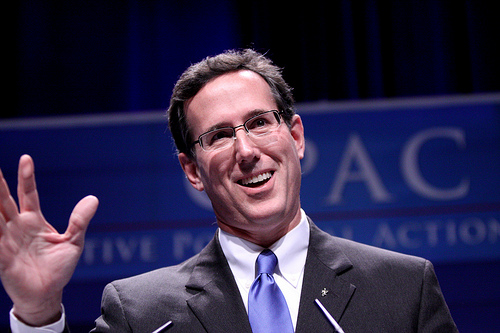
Are we talking about only serving sugar in bars? Or needing a “sugar license”? (Photo by jacsonquerubin.)
A recent op-ed published in the journal Nature, by several scientists who are experts in their field, has the pundits all aflutter. But the subject is somewhat surprising: Sweeteners. (Nutrition professor Marion Nestle has posted the full PDF of the article here.)
Robert Lustig (a minor YouTube celebrity since his 2009 lecture on fructose), Laura Schmidt, and Claire Brindis argue that added sweeteners of all kinds — including sugar, high-fructose corn syrup, and all their oddly named ilk (that means you, maltodextrin!) — have as many negative health effects as alcohol and should be regulated.
Responses have come from all over the food politics spectrum — from Raj Patel in The Atlantic, who took to dreaming of a world where large corporations aren’t in charge of feeding us, to Jennifer LaRue Huget on the Washington Post’s Checkup blog, who just wants everyone to get off her lawn leave such issues to personal responsibility.
Others have expressed scorn toward the group of scientists for addressing policy at all. This opinion can be summed up by a tweet from reporter Dan Mitchell that read, “Scientists need to set a much higher bar for proposing policy measures.”
Now, I agree that policy expertise is its own animal. But when it comes to science-related policy — climate change, genetically engineered foods, water quality, and toxic substances, to name a few — I think policymakers could stand to pay a wee bit more attention to what scientists have to say.
Even so, my sense is that the true importance of this op-ed is getting lost in all the knee-jerk “to nanny or not to nanny” responses. You see, in their abstract, the scientists wrote, “Added sweeteners pose dangers to health that justify controlling them like alcohol.” This no doubt takes the reader to an immediate and very particular place. I mean, are we talking about only serving sugar in bars? Needing a “sugar license”? Has the world gone mad?!
The grammarian in me says that shifting the clauses around to read, “Like alcohol, added sweeteners pose dangers to health that justify controlling them,” makes for a meaning that’s closer to what I think the authors were going for, and puts the focus on the general similarities rather than implying that we should, say, pass a constitutional amendment prohibiting sugar.
Let’s focus on the authors’ core assertions:
1. Our biggest health problem isn’t obesity. It’s metabolic disorders like diabetes, hypertension, high cholesterol, cardiovascular disease and non-alcoholic fatty liver disease. And sweeteners play an outsized role in the worldwide epidemic of these conditions. As the authors put it:
… 20% of obese people have normal metabolism and will have a normal lifespan. Conversely, up to 40% of normal-weight people develop the diseases that constitute the metabolic syndrome … Obesity is not the cause; rather, it is a marker for metabolic dysfunction, which is even more prevalent.
In short: Fat but Fit FTW!
2. Added sweeteners meet the four criteria for government regulation set out in social psychologist Thomas Babor’s 2003 book Alcohol: No Ordinary Commodity, which are “now largely accepted by the public-health community.” Those criteria are: “unavoidability (or pervasiveness throughout society), toxicity, potential for abuse and negative impact on society.”
3. Governments in the U.S. and abroad have been slow to acknowledge the above and remain focused on saturated fat and salt, which, it turns out, contribute less to metabolic disorders than we used to think.
4. Several of today’s popular solutions aren’t really working. Research has shown that “school-based interventions that teach children about diet and exercise” don’t demonstrate any meaningful benefit. Taxes, meanwhile, don’t do enough on their own to lower consumption.
As I see it, these are the points we should be discussing. Not whether we need to add sugar to the name of the Bureau of Alcohol, Tobacco, and Firearms. In fact, taxes, marketing restrictions, and limitations on availability are all already being tried. (On that last one, the article references a group of parents in Philadelphia who have attempted a tough form of age restriction — they physically block the entrance to corner stores when schools let out to prevent kids from buying sugary drinks or snacks).
Efforts like these are common, but they’re still haphazard — and they’re mostly taking place at the local level. That fact simply makes it easier for food companies to control the debate — as it appears they’ve been able to do with junk food vending machines in elementary schools.
Indeed, every one of the authors’ suggestions* is being attempted in some form somewhere in the United States, just not effectively or broadly enough to make a difference.
What Lustig and his collaborators really want us to understand, I think, is that the science behind sweeteners’ metabolic effects requires a more rigorous, national effort. And that rather than focusing on soda alone, for instance, we should include all products with added sweeteners. Sadly, it doesn’t seem like that’s the takeaway for most readers.
Still, this op-ed did accomplish one thing — it has gotten lots of people debating the potential dangers of sugar and the need for regulation. And that’s a good place to start.
*with the possible exception of their proposal that fructose be removed from the FDA’s “Generally Regarded as Safe” list of food additives that companies can use without restriction.



